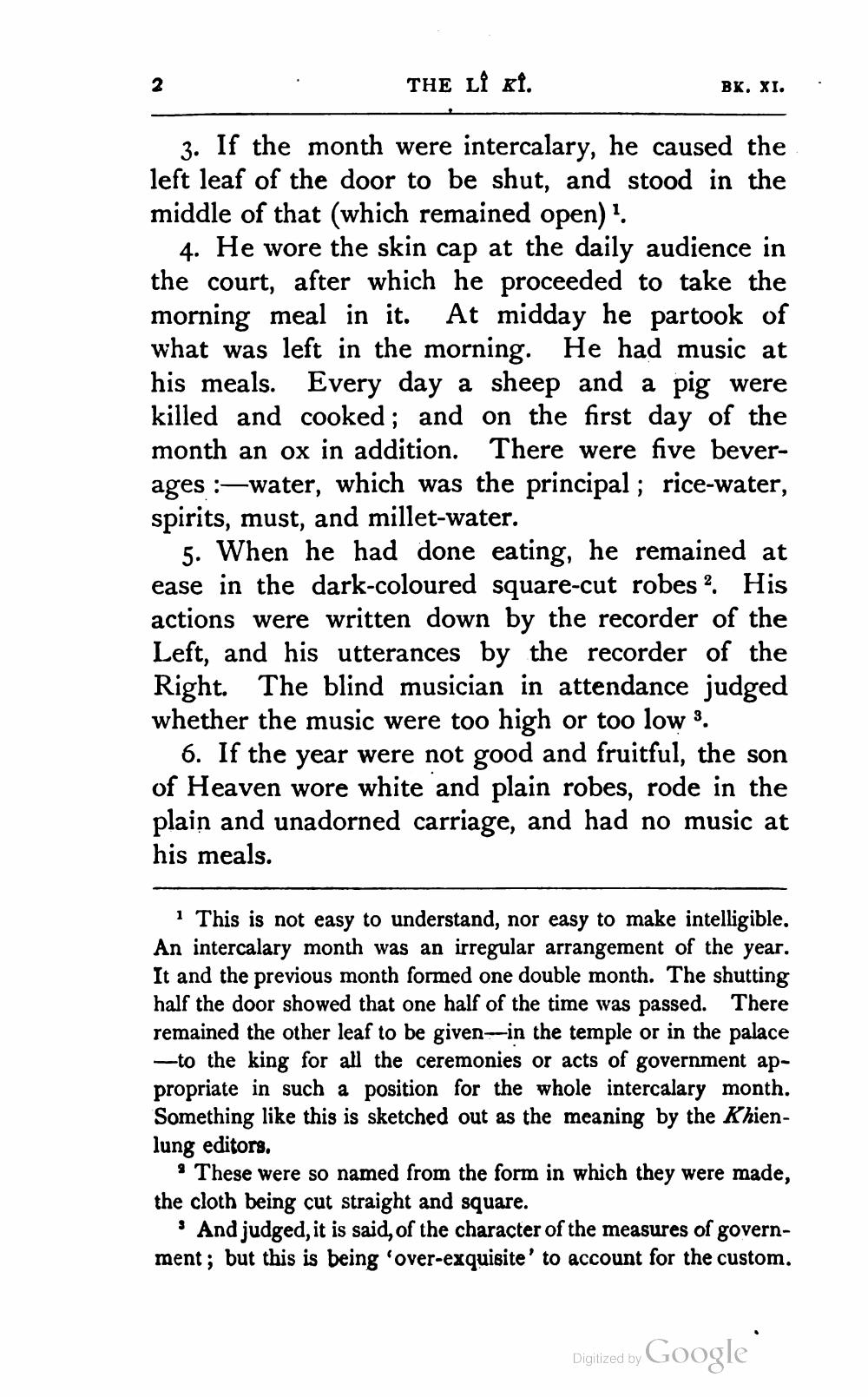________________
THE LI KÎ.
3. If the month were intercalary, he caused the left leaf of the door to be shut, and stood in the middle of that (which remained open)1.
2
BK. XI.
4. He wore the skin cap at the daily audience in the court, after which he proceeded to take the morning meal in it. At midday he partook of what was left in the morning. He had music at his meals. Every day a sheep and a pig were killed and cooked; and on the first day of the month an ox in addition. There were five beverages-water, which was the principal; rice-water, spirits, must, and millet-water.
5. When he had done eating, he remained at ease in the dark-coloured square-cut robes 2. His actions were written down by the recorder of the Left, and his utterances by the recorder of the Right. The blind musician in attendance judged whether the music were too high or too low 3.
6. If the year were not good and fruitful, the son of Heaven wore white and plain robes, rode in the plain and unadorned carriage, and had no music at his meals.
This is not easy to understand, nor easy to make intelligible. An intercalary month was an irregular arrangement of the year. It and the previous month formed one double month. The shutting half the door showed that one half of the time was passed. There remained the other leaf to be given-in the temple or in the palace -to the king for all the ceremonies or acts of government appropriate in such a position for the whole intercalary month. Something like this is sketched out as the meaning by the Khienlung editors.
These were so named from the form in which they were made, the cloth being cut straight and square.
And judged, it is said, of the character of the measures of government; but this is being 'over-exquisite' to account for the custom.
Digitized by Google




